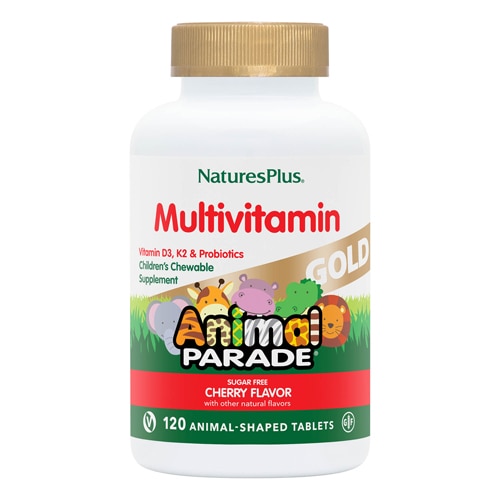[vc_row][vc_column][vc_column_text]Kids' gut health is so essential that
one study declared, "The gut microbiome should be thought of as an organ system that has important effects on childhood development."
But the busy mornings, late nights and snack-fueled homework sessions that come with the
back-to-school season can disrupt the developing microbiome and set kids up for disease later in life.
Here's why good gut health matters for your kids—and how you can support it as they transition into a new school year.

Why is gut health important for kids?
Kids' microbiomes
specialize in functions like synthesizing vitamin B12, controlling inflammation and metabolizing amino acids involved in the gut-brain axis. These functions are important for the growth and development of:
- The lungs
- The central nervous system
- The brain and cognitive function
- The immune system
Research suggests that the school years are a formative time for kids' microbiomes, so gut health during this period could affect health in adulthood.
Dangers to kids' gut health
Common challenges and lifestyle patterns during the school season can undermine gut health in childhood and adolescence and disrupt healthy microbiome development.
1. Eating refined foods high in fat and sugar
Packaged snacks and fast food, two convenient back-to-school staples, are often full of sugar, fat and refined carbohydrates—but not fiber. Such ultra-processed fare can
increase harmful bacteria in the gut and shift the microbiome toward a
pro-inflammatory state.
Without fiber to feed on, good gut bacteria essentially starve and can't repopulate to balance out pro-inflammatory populations. This can lead to dysbiosis, a microbial imbalance associated with poor health and disease.
2. Dealing with excess stress
Periods of high stress—like dealing with a busy school schedule and a heavy homework load—have been shown to promote leaky gut in animal studies. Leaky gut may allow pathogens, proteins and other particles to pass into the bloodstream from the gut, which can lead to
inflammation, allergies and immune problems.
Stress is also a risk factor for irritable bowel syndrome (IBS). A proper balance of good bacteria appears necessary for proper
gut nerve function and animal studies have shown that dysbiosis may
increase the hypersensitivity responsible for IBS gut pain and discomfort.
3. Not getting enough sleep
It's not unusual for kids to stay up late doing homework, watching TV or texting friends, but this pattern can affect the gut microbiome over time. More than one night of
disrupted sleep may:
- Reduce microbial diversity
- Increase disease-promoting microbes
- Promote leaky gut
- Increase the production of pro-inflammatory compounds
- Affect mood through altered neurotransmitter metabolism
Since almost
35% of kids don't get enough sleep, these problems could become significant concerns if the school year includes too many late nights.
4. Being sedentary
According to the CDC, kids between the ages of 6 and 18 spend an average of
7.5 hours per day in front of screens. And these numbers appear to be
trending up, which is bad news for kids' gut health.
All that sedentary time may reduce the number of health-promoting gut bacteria and overall
bacterial diversity. This may be partly due to the
high-fat, high-sugar food choices that tend to correlate with passive activities like watching TV and playing video games.
5. Gaining weight
Too much junk food and too little active time can increase kids' risk of obesity—and alter their gut microbiomes. Studies show that the ratio of
Firmicutes to
Bacteroidetes in the gut tends to increase with BMI, and the
Lactobacillus species
L. reuteri may also be associated with obesity.
†
Significant differences between the
gut microbiome populations of obese children and those at a healthy weight suggests that obesity may have a more serious effect on gut health for kids than adults.
†
Gut health for kids: 4 steps for improvement
No matter what challenges your kids face during the school year, a good gut health plan can help them come through with their microbiomes intact—or even healthier than before.
Make kids' gut health part of your back-to-school routine with these microbiome-friendly strategies.
Feed your kids a gut-healthy diet
The number one way to support a growing microbiome is to feed your kids more fiber from foods like vegetables, fruits, whole grains and beans. Good gut microbes break down the prebiotic fibers in these foods to produce compounds that improve gut health, reduce inflammation and support immunity.
To boost your kids' fiber intake,
replace ultra-processed snacks with:
At meals, try tricks like swapping beans for meat in chili, adding vegetables to pasta dishes and stirring leafy greens into soups.
Encourage microbiome-boosting exercise
Exercise increases microbial diversity, boosts immune-supporting gut bacteria, and lowers the risk of obesity-related microbiome changes. In children with obesity, exercise can shift the microbiome toward a healthier balance and
reduce pro-inflammatory signals.
Encourage your kids to turn off the TV, put down their phones and get moving with fun family activities like:
- Taking a walk or hike in a local park
- Visiting a nearby playground
- Biking around the neighborhood
- Playing yard games
Hobbies like sports, dance, or gymnastics are also great ways for kids to stay active.
Practice good sleep hygiene
Kids in middle and high school need between
eight and 12 hours of sleep each night to refresh and recharge. For the sake of their gut health, put boundaries around bedtime. (Yes, even for teenagers.)
Removing screens from the bedroom is also key to good sleep. Blue light from phones and TVs can disrupt kids' circadian rhythms and rob them of restful slumber. Instead of screen time, encourage activities like reading, doing crafts or playing board games before bed.
Beat stress with play
Outdoor play can improve kids' moods and help them
feel less stressed. In addition to the benefits of stress reduction in gut health for kids, spending time in nature may also
increase microbiome diversity. The effects appear to be
short term, but kids who play outside could still benefit from improved immune function and reduced inflammation. And since play adds more active time to kids' days, it can help them maintain a healthy weight and prevent the dysbiosis associated with increased BMI.
Does my child need a probiotic?
If you focus on supporting good gut health for your kids, their microbiomes should thrive without probiotics. However,
probiotic supplements may be beneficial if your child requires multiple courses of antibiotics due to illness.
Antibiotic exposure can kill off beneficial bacteria and promote dysbiosis. Probiotics could help your child's microbiome
recover from antibiotic use and restore balance, but not all research shows benefits from
using probiotics with antibiotics.
A healthy high-fiber diet, active recreation and a consistent sleep schedule should be all your kids need to conquer the challenges of the school year with confidence and good gut health.
†These statements have not been approved by the Food and Drug Administration. These products are not intended to diagnose, treat, cure or prevent disease.[/vc_column_text][/vc_column][/vc_row][vc_row][vc_column][vc_text_separator title="Featured Products" border_width="2"][vc_row_inner equal_height="yes" content_placement="middle" gap="35"][vc_column_inner width="1/3"][vc_single_image image="168293" img_size="full" alignment="center" onclick="custom_link" img_link_target="_blank" css=".vc_custom_1691855339078{padding-right: 7% !important;padding-left: 7% !important;}" link="https://www.vitacost.com/megafood-megaflora-kids-probiotic"][/vc_column_inner][vc_column_inner width="1/3"][vc_single_image image="168292" img_size="full" alignment="center" onclick="custom_link" img_link_target="_blank" css=".vc_custom_1691855358486{padding-right: 7% !important;padding-left: 7% !important;}" link="https://www.vitacost.com/garden-of-life-raw-probiotics-kids"][/vc_column_inner][vc_column_inner width="1/3"][vc_single_image image="168291" img_size="full" alignment="center" onclick="custom_link" img_link_target="_blank" css=".vc_custom_1691855377550{padding-right: 7% !important;padding-left: 7% !important;}" link="https://www.vitacost.com/vitacost-kidhealth-probiotic-tabs-for-kids-cherry"][/vc_column_inner][/vc_row_inner][/vc_column][/vc_row]




